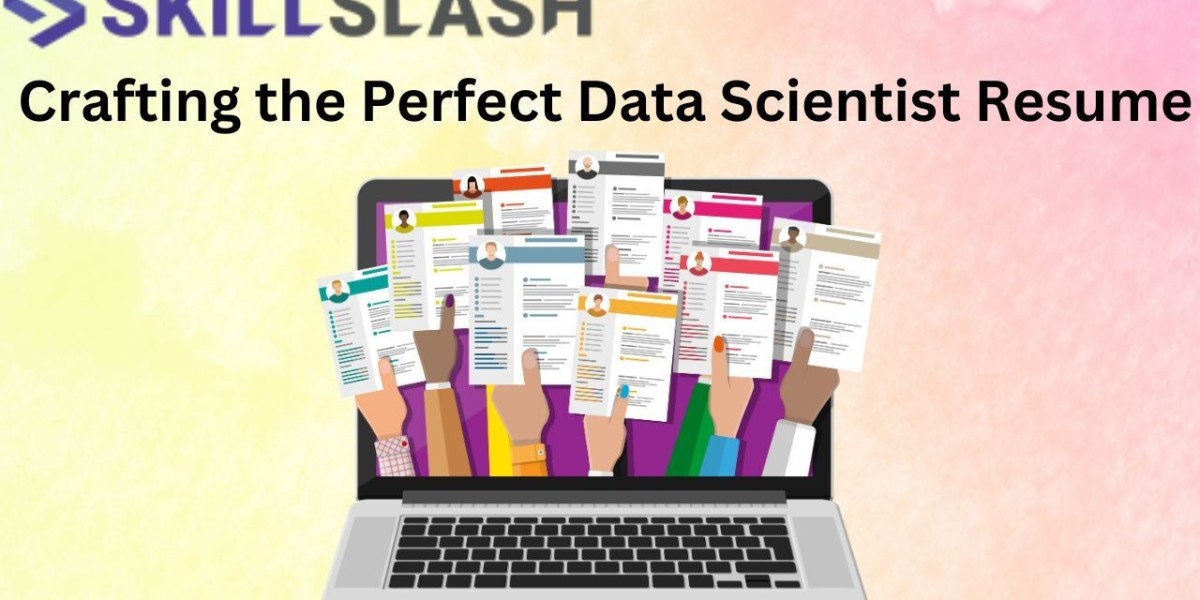Introduction
In today's data-driven world, data scientists are in high demand. These analytical wizards play a critical role in extracting valuable insights from complex datasets, helping organizations make informed decisions. To secure your dream data scientist job, you need an impressive resume that not only showcases your skills but also stands out from the competition. In this article, we will explore data scientist resume examples, modern templates, and samples to help you create a compelling document that will open doors to exciting career opportunities.
Section 1: The Anatomy of a Data Scientist Resume
Before delving into specific examples and templates, let's dissect the essential components of a data scientist's resume:
1.1 Contact Information:
Begin with your name, phone number, professional email address, and LinkedIn profile. Make sure it's easily accessible at the top of your resume.
1.2 Summary or Objective Statement:
Craft a concise summary highlighting your expertise and career goals. Tailor this section to the specific job you're applying for.
1.3 Skills:
List both technical and soft skills relevant to the data scientist role. Technical skills may include programming languages (Python, R), machine learning libraries, and data visualization tools, while soft skills might encompass problem-solving and communication abilities.
1.4 Professional Experience:
Detail your work history, starting with your most recent position. Include the company name, location, your job title, and employment dates. Use bullet points to highlight your key accomplishments, focusing on quantifiable achievements and contributions.
1.5 Education:
List your educational background, including degrees, universities, graduation dates, and relevant coursework or honors. If you have a Master's or Ph.D. in a related field, emphasize it.
1.6 Projects or Research:
Highlight any significant data science projects or research work. Describe the problem, your approach, tools used, and outcomes.
1.7 Certifications:
If you hold certifications relevant to data science (e.g., Advanced Data Science and AI Course certification from Skillslash), mention them here.
1.8 Awards and Publications:
Include any awards, publications, or presentations that demonstrate your expertise and contributions to the field.
Section 2: Data Scientist Resume Examples
Now that you understand the key elements of a data scientist resume, let's explore some engaging examples to inspire your own:
Example 1: The Visual Storyteller
[Your Name]
[Your Contact Information]
Summary:
Data scientist with 5+ years of experience in analyzing complex datasets and generating actionable insights. Proficient in machine learning, data visualization, and statistical analysis. Adept at communicating technical findings to non-technical stakeholders.
Skills:
- Programming Languages: Python, R
- Machine Learning: Scikit-Learn, TensorFlow
- Data Visualization: Tableau, Matplotlib
- Statistical Analysis: Hypothesis Testing, Regression Analysis
- Big Data: Hadoop, Spark
- Soft Skills: Problem Solving, Data Communication
Professional Experience:
Data Scientist | XYZ Analytics, [Location] | [Employment Dates]
- Developed predictive models that improved customer retention by 20%.
- Collaborated with cross-functional teams to design interactive dashboards for real-time data monitoring.
- Conducted A/B tests resulting in a 15% increase in conversion rates.
Education:
- Master of Science in Data Science | [University] | [Graduation Date]
- Bachelor of Science in Computer Science | [University] | [Graduation Date]
Projects:
- Predictive Maintenance System for Manufacturing: Built a machine learning model to predict equipment failures, reducing downtime by 25%.
- Customer Segmentation Analysis: Utilized clustering algorithms to identify target customer groups, leading to a 30% boost in marketing ROI.
Certifications:
- Certified Data Scientist (CDS)
- Business Analytics Program For Professionals from Skillslash
- AWS Certified Machine Learning Specialist
Awards and Publications:
Best Paper Award, International Conference on Data Science
"The Future of Data Science: Trends and Challenges," Data Science Journal, [Year]
Example 2: The Entry-Level Enthusiast
[Your Name]
[Your Contact Information]
Summary:
Recent graduate with a Bachelor's degree in Data Science, eager to apply coursework knowledge and analytical skills to real-world challenges. Strong foundation in data manipulation, statistical analysis, and programming.
Skills:
- Programming Languages: Python, SQL
- Data Analysis: Pandas, NumPy
- Data Visualization: Matplotlib, Seaborn
- Machine Learning: Linear Regression, Decision Trees
- Soft Skills: Analytical Thinking, Attention to Detail
Professional Experience:
Data Analyst Intern | ABC Corporation, [Location] | [Employment Dates]
- Assisted in data cleaning and analysis, contributing to a 10% increase in data accuracy.
- Created visualizations and reports for management, aiding in decision-making processes.
Education:
Bachelor of Science in Data Science | [University] | [Graduation Date]
Projects:
- Predictive Modeling for Stock Prices: Developed a linear regression model to predict stock prices based on historical data.
- Customer Churn Analysis: Conducted a churn analysis using SQL and visualized findings to identify factors impacting customer retention.
Certifications:
Full Stack Developer Course With Certification from Skillslash
Awards and Publications:
None (Entry-level)
The Significance of a Data Scientist Resume
- Your Career Launchpad
Your resume is your first impression in the job market. It serves as a gateway to interviews and potential job offers. For students aspiring to become data scientists, a well-crafted resume is crucial as it showcases your skills and qualifications, helping you stand out from the competition.
- Evidence of Your Skills
Think of your resume as a canvas where you paint a picture of your capabilities. It's not just a list of qualifications; it's a document that demonstrates how you've applied your knowledge and skills to solve real-world problems. Employers want to see evidence of your ability to work with data, analyze it, and derive valuable insights.
Creating a Data Scientist Resume: Key Considerations
- Relevance is Key
Tailor your resume for each job application. Highlight the skills and experiences most relevant to the specific data scientist role you're applying for. Avoid a one-size-fits-all approach. Customize your resume to align with the job description.
- Quantify Your Achievements
Don't just list your job responsibilities; quantify your accomplishments. Use numbers and percentages to illustrate the impact of your work. For example, "Implemented a machine learning model that increased revenue by 15%" is more compelling than "Implemented a machine learning model."
- Showcase Technical and Soft Skills
In addition to technical skills like programming languages and data analysis tools, emphasize soft skills such as problem-solving, communication, and teamwork. Data scientists don't work in isolation; they collaborate and communicate their findings to diverse audiences.
- Highlight Projects
Projects are a critical part of a data scientist's portfolio. Include significant projects that demonstrate your problem-solving abilities and your proficiency with data tools. Describe the problem, your approach, the tools you used, and the outcomes.
- Education and Certifications
Highlight your educational background and any relevant certifications. If you're a student, emphasize your coursework, projects, and academic achievements related to data science. Certifications like those from recognized institutions or platforms add credibility to your profile.
- Keep it Clear and Concise
Recruiters often have limited time to review resumes. Keep your resume well-organized, using clear headings and bullet points to convey information efficiently. Avoid lengthy paragraphs and unnecessary details.
Modern Resume Trends for Data Scientists
- Data Visualization
Consider incorporating data visualization elements into your resume. Infographics or charts can effectively illustrate your proficiency in data visualization tools and make your resume more engaging.
- Keywords
Many companies use applicant tracking systems (ATS) to screen resumes. To increase the chances of your resume passing through ATS, use relevant keywords from the job description naturally in your resume.
- Online Presence
Include a link to your LinkedIn profile or a personal website/portfolio if you have one. These online profiles can provide a more extensive view of your work and accomplishments.
- Professional Summary
Craft a compelling professional summary at the beginning of your resume. This brief section should encapsulate your key skills, experience, and career goals.
Conclusion
Crafting an effective data scientist resume is a crucial step toward landing your dream job in the data-driven world. By following the examples and utilizing the modern templates provided in this article, you can create a compelling and visually appealing resume that highlights your skills and experience. Remember to tailor your resume for each job application, emphasizing the qualifications that align with the specific role. With the right resume, you'll be well on your way to securing that coveted data scientist position and making a significant impact in the field of data science.
In the competitive field of data science, a well-crafted resume can be the key to opening doors to exciting opportunities. Remember that your resume is a dynamic document that should evolve as you gain more experience and skills. Continuously update and refine it to reflect your growth as a data scientist. By following these guidelines and staying attuned to industry trends, you can create a data scientist resume that not only educates but also captivates potential employers, paving the way for a successful career in this dynamic and evolving field.



